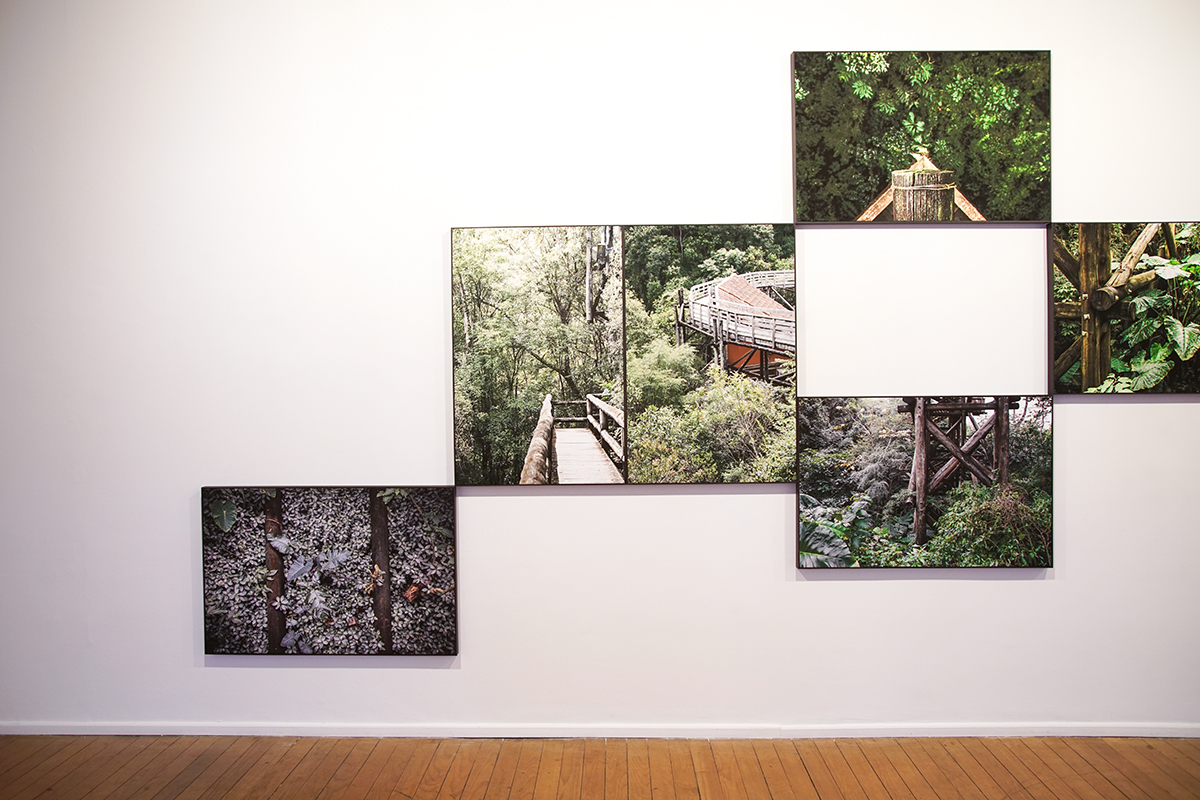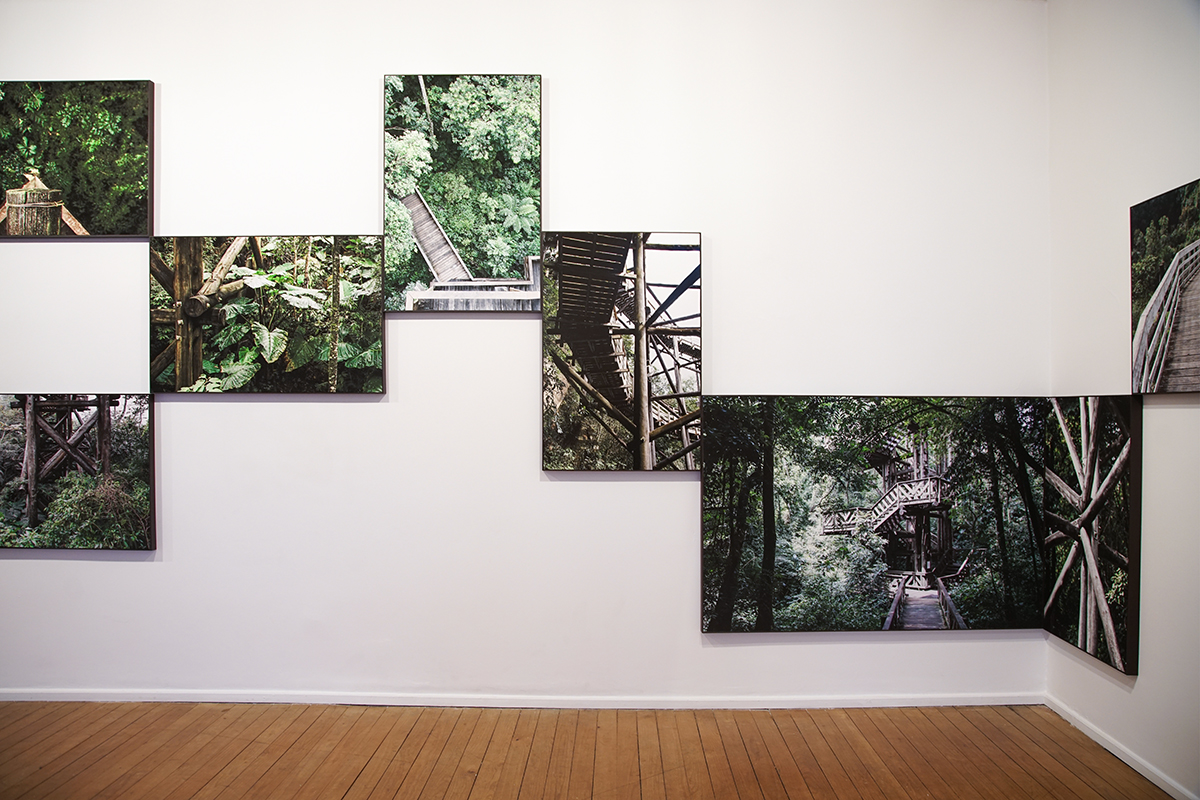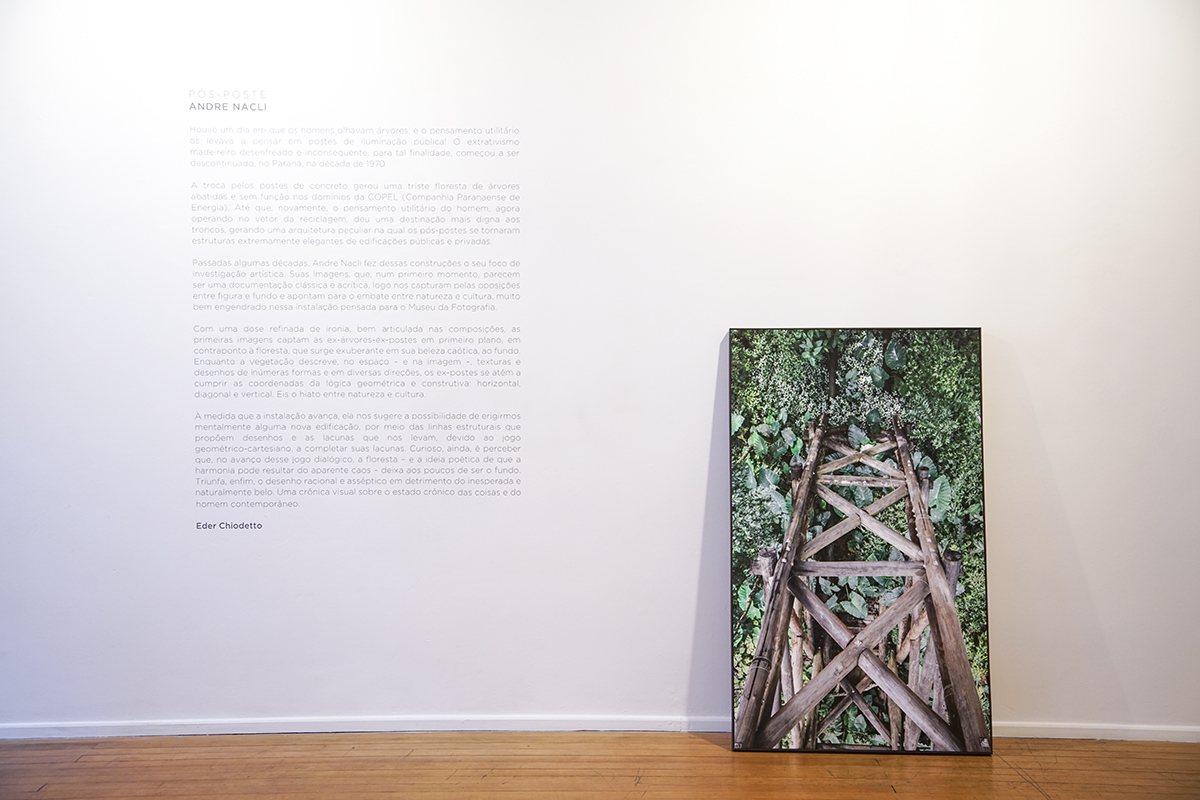Museu da Fotografia de Curitiba - Ago16
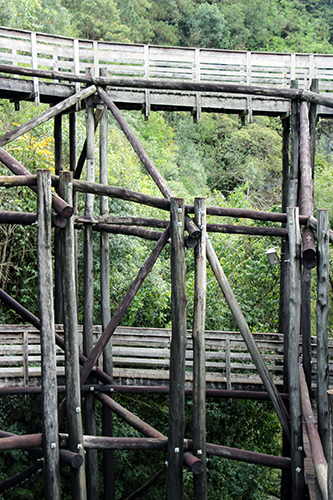
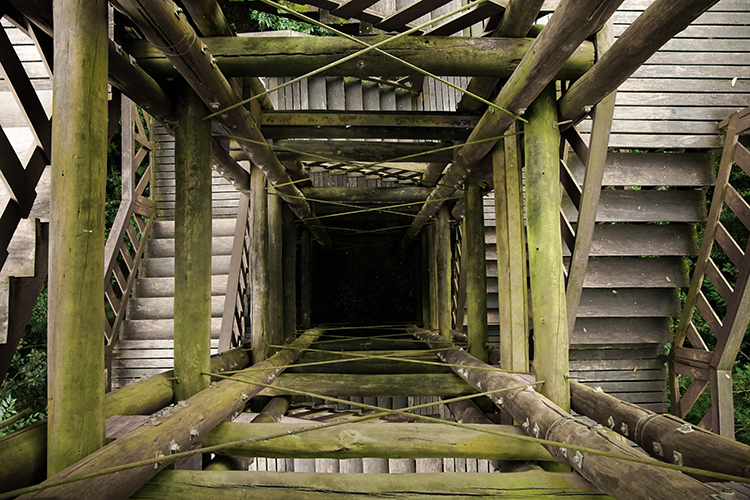


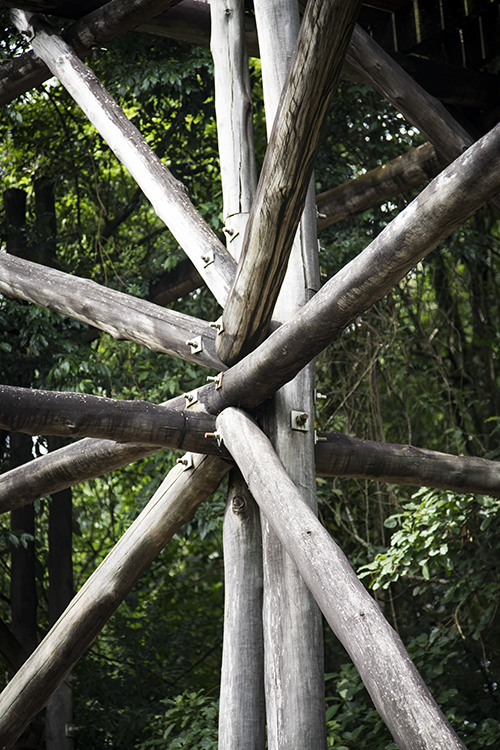
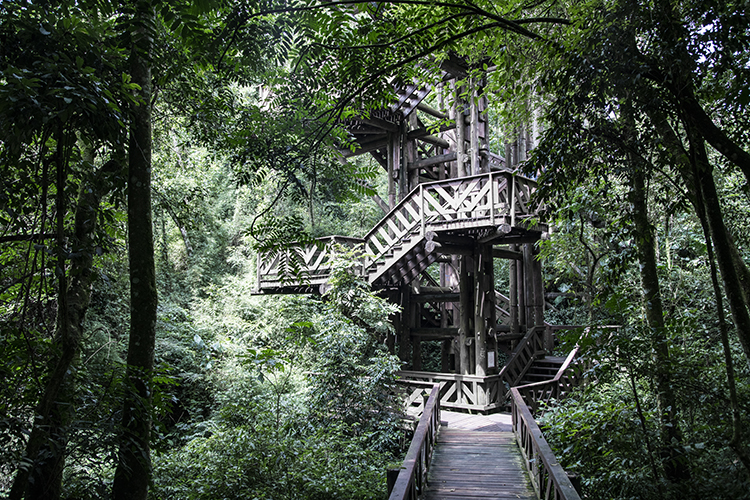
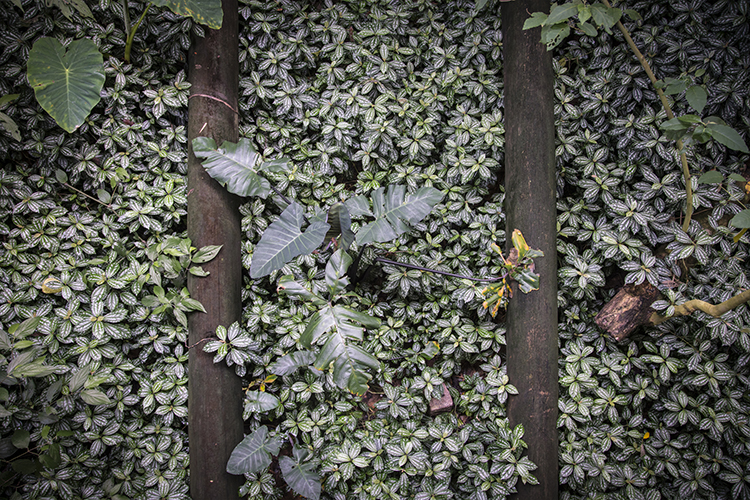
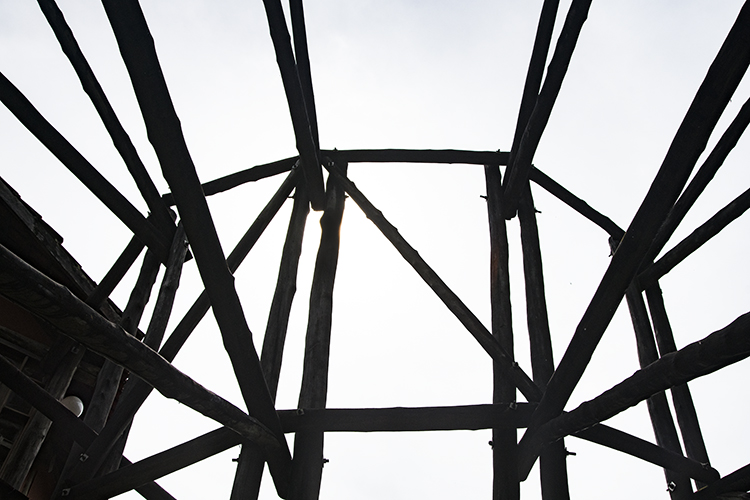
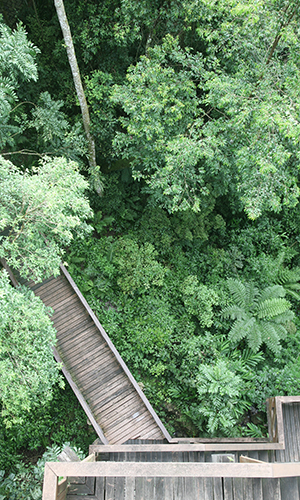
POS POSTE
There was a day when men looked at trees and their utilitarian thought led them to think about poles for streetlights! Unbridled and misguided lumbering, with that purpose, began to be discontinued in Paraná in the 1970s. The substitution of wooden poles by cement ones gave rise to a sad forest of cut-down trees on lands owned by the COPEL energy company. Until once again man’s utilitarian thinking, now operating from a perspective of recycling, gave a more dignified destination to the tree trunks, generating a peculiar architecture in which thepost-poles became extremely elegant structures in public and private buildings.
Some decades later,Andre Nacli took these constructions as the focus of his artistic investigation. His images, which initially look like a classical and noncritical documentation, soon enthrall us by their oppositions between figure and background and for the clashing between nature and culture, which is powerfully evinced in this installation conceived for theMuseu da Fotografia.
With a refined dose of irony, which is well articulated in the compositions, the first images capture the ex-trees-ex-poles in the foreground, in counterpoint with the forest, which rises exuberantly, in its chaotic beauty, in the background. While the vegetation describes textures and countless shapes configured in different directions in the natural space – and in the image – the ex-poles operate to provide the coordinates of geometric and constructive logic: the horizontal, the diagonal, and the vertical. Here arises the gap between nature and culture.
As the installation advances, it suggests to us the possibility of mentally erecting some new building, by means of the structural lines suggestive of drawings, with gaps between them that beckon to us to fill them in, in a geometric-Cartesian game. A further curiosity is to perceive that in the advance of this dialogic game, the forest – and the poetic idea that harmony can result from apparent chaos – is gradually promoted from its place in the background. The rational and aseptic drawing is finally triumphant over the naturally and unexpectedly beautiful. It is a visual report about the chronic state of things and of contemporary man.
Houve um dia em que os homens olhavam árvores, e o pensamento utilitário os levava a pensar em postes de iluminação pública! O extrativismo madeireiro desenfreado e inconsequente, para tal finalidade, começou a ser descontinuado, no Paraná, na década de 1970.
A troca pelos postes de concreto gerou uma triste floresta de árvores abatidas e sem função nos domínios da COPEL (Companhia Paranaense de Energia). Até que, novamente, o pensamento utilitário do homem, agora operando no vetor da reciclagem, deu uma destinação mais digna aos troncos, gerando uma arquitetura peculiar na qual os pós-postes se tornaram estruturas extremamente elegantes de edificações públicas e privadas.
Passadas algumas décadas, André Nacli fez dessas construções o seu foco de investigação artística. Suas imagens, que, num primeiro momento, parecem ser uma documentação clássica e acrítica, logo nos capturam pelas oposições entre figura e fundo e apontam para o embate entre natureza e cultura, muito bem engendrado nessa instalação pensada para o Museu da Fotografia.
Com uma dose refinada de ironia, bem articulada nas composições, as primeiras imagens captam as ex-árvores- ex-postes em primeiro plano, em contraponto à floresta, que surge exuberante em sua beleza caótica, ao fundo. Enquanto a vegetação descreve, no espaço – e na imagem –, texturas e desenhos de inúmeras formas e em diversas direções, os ex-postes se atêm a cumprir as coordenadas da lógica geométrica e construtiva: horizontal, diagonal e vertical. Eis o hiato entre natureza e cultura.
À medida que a instalação avança, ela nos sugere a possibilidade de erigirmos mentalmente alguma nova edificação, por meio das linhas estruturais que propõem desenhos e as lacunas que nos levam, devido ao jogo geométrico-cartesiano, a completar suas lacunas. Curioso, ainda, é perceber que, no avanço desse jogo dialógico, a floresta – e a ideia poética de que a harmonia pode resultar do aparente caos – deixa aos poucos de ser o fundo. Triunfa, enfim, o desenho racional e asséptico em detrimento do inesperada e naturalmente belo. Uma crônica visual sobre o estado crônico das coisas e do homem contemporâneo.
Eder Chiodetto



